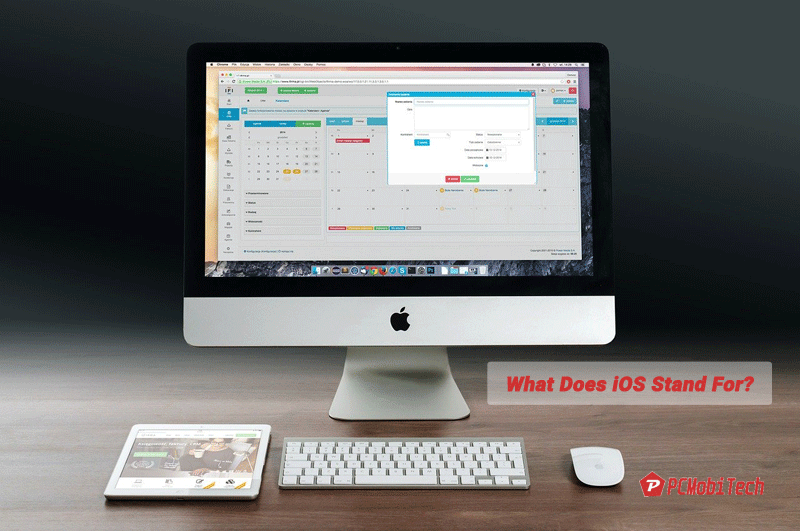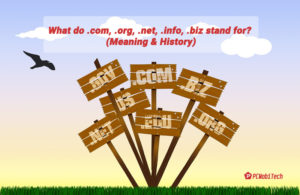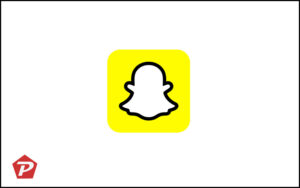In simple words, iOS is Apple’s operating system like any other operating system that powers the iPhone and iPod Touch, iPad, etc. But soon after 2019’s Keynote event, the operating system was no longer used for iPad. It has its operating system. For all those of you who are still wondering what an operating system is, an operating system (OS) is a type of software that manages all aspects of a computer.
It provides or gives users a platform so the device’s both hardware and software can interact well, plus it manages many processes that run on your computer and keeps it functional.
People usually run Windows, macOS, or Linux operating systems on their personal computers or desktops. Some might even run Fedora. Similarly, for mobile devices, or other portable devices, Apple’s iOS and Google’s Android are the ones most popular and loved by the users.

Quick Links
What is an Operating System?
An operating system is what lies between the user and a physical device; it is like a bridge that connects both sides. It interprets and understands the commands of software applications (apps).
Once, it has interpreted the application and its pushed in command, it lets the application software utilize the features of the concerned device. This way, applications run on our devices. The function can be anything like multitouch access, etc.
Mobile operating systems are not the same as the other operating systems. For instance, iOS differs from most of the different operating systems since it puts each app in a protective shell to maintain its authenticity. This way, it saves it from apps that could tamper with them and thus, all apps function simultaneously.
Apple’s operating system has been designed in such a way that it is nearly impossible for any virus to harm apps on an operating system even though other types of malware and viruses do exist. The protective shell surrounding apps also poses certain limitations and restrictions since it keeps apps from directly interacting with each other.
Even if you’re a new Apple user or have been using its products for quite a few years now, there might still be some doubts over what iOS is. Perhaps you’re aware that OS is short for the operating system, so where does the world-famous ‘i’ of the brand come from and what it means, let’s shed light on that.
What is iOS?
Apple’s iOS is an operating system exclusively designed for mobile devices manufactured by Apple. iOS is used over various Apple devices, including the iPhone, iPad, iPod, MacBook, and Apple TV.
The finger actions like swiping, tapping, and pinching, are typically performed on multitouch touch screen displays to ensure an excellent experience for users. It aims to deliver a quick response and allows inputs from multiple fingers at the same time. It is not the best mobile OS globally, as it restricts certain parameters. However, iOS dominates the North American market by a significant margin, with a whopping 60 percent market share generated from the stats back in May 2010.
An even more straightforward form of explanation has been given by Techopedia of what an iOS is. As per the understanding of Techopedia, iOS is derived from Mac OS X and is a Unix-like OS.
They deliberate that there are majorly four abstraction layers within iOS. These four layers are combined to deliver a fantastic user interface and a great and smooth experience. These four layers are:
Core OS Layer: The layer is designed to provide low-level and elementary features as well a structure for security and interaction with external hardware components
Core Services Layer: This layer is basically used to offer services that are needed by layer for safety
Media Layer: The layer provides the essential technologies for graphics, audio, and video- basically, things that are delivered to the user or are a part of the user interface
Coco Touch Layer: This is where the frameworks are positioned, which are often used in designing an application
Besides all these safety measures that Apple keeps in its operating system to inhibit invasion by any virus, it has some preinstalled applications as well. The iOS has been built with a lot of default apps that are installed for the sole purpose of extending safety and surrounding the operating system and so the device from viruses or foreign invaders.
These defaults apps include an email client, a Web browser called Safari, the phone app, iMessage, which is apple’s messaging application that runs between Apple users only. In addition to these apps, there are podcasts, iTunes, voice memos, apple maps, etc. The applications are not limited to the ones stated above; the list goes on to a few more apps too.
Developers can even take the benefit of the iOS software development kit (SDK) to create apps for Apple devices. The kit includes tools and interfaces that help the developers to create what they want to, and it provides them options for developing, installing, testing apps, and running.
Native apps can be developed using the iOS structures and the Objective-C programming language. Included in the iOS kit is the Xcode Tool. The tool includes an integrated development environment (IDE) for managing all the application projects, as well as a graphical tool for creating the UI and a tool for debugging and analyzing runtime performance.
In addition to this, there is Terminal; it helps in checking for bugs, running programs, opening directories, and gathering information. It even has a simulator, which allows developers to check apps on a Mac, and a developer library, that gives all the vital documentation and reference material. All of these are made available to ensure that the developers, as well as the users, get a streamlined and defined experience.
History of iOS
Apple launched iOS, then known as the iPhone OS in the year 2007, on the 29th of June, with the first-ever iPhone. From that day, the operating system for mobile has undergone significant changes. It wasn’t done overnight, a lot of hard work, skill, and thought went into its making. Steve Jobs, with his comrades, made it possible.
In the year 2007, Steve Jobs introduced the first-ever iPhone and along with it the iPhone OS 1. At the time of the press conference, he called the operating system like OS X since it had a similar Unix core when compared to the entire desktop version of the operating system.
Soon after Apple launched the iPhone’s SDK, the name was changed to iPhone OS. At that time who knew it this very first OS was going to do wonders in the market and industry over the years.
Every year in the summer, Apple has reinvented the OS, adding new features and redefining what’s possible on all its iDevices. While every year, new iOS is launched, the company keeps updating the versions to remove bugs and for better and improved performance. In 2024, the next iOS being 17th in the series is going to be launched along with the new iPhone.
Also See:
- 5 Best Document Scanner Apps For Android & iOS
- How to Move Existing OS from HDD or SSD to A Samsung SSD?
- Best File Sharing Apps Android & iOS.
- Best Data Recovery Software For Windows & Mac PC.
Benefits of iOS if compared to Android
- iOS apps are better than Android, mostly because iOS is better than Android. iOS gives more privacy, security and control over your app and ensures that the security and privacy are not tainted. Android does not. Hence it automatically makes the former better.
- iOS is not just the OS; it is also an ecosystem, much like Android is. You can create a virus for Android, not for iOS. Why? Because iOS apps are tested against various parameters and if you make an iOS app which does something unwanted for the user, may Apple have mercy on you. This is so because Apple gives utmost importance to its user’s privacy and security of details. This is not so in Android. And making a virus on iOS is practically impossible (practical = technical difficulty levels + ecosystem + control of Apple on quality).
- You add a header file/ library in your iOS project and not use it anywhere in the project – that is enough to get your app rejected on Apple Appstore. Apple is a nazi about performance. Its USP is its uniqueness and performance. It won’t let anyone tamper with it.
- iOS apps are also tested for ‘beauty’. A certain level of user interface friendliness is required for any of the iOS apps to be approved on the AppStore. Nothing like that for Google.
- iOS is a closed/secure platform in general. One cannot crack an app, release an APK and let others download via their browsers and install. To pull something like that off on iPhone, iPad, or even iPod, you need to jailbreak it which is much less often than Android rooting. So you are even more secure.
- iOS is closed/secure platform for Apps. iOS apps are not allowed to touch things directly outside the directory they are installed into. In Android, the apps can read and write the entire file system. They even ask for permission every time before installing though its users rarely read it. Even the system is wide open. You cannot do that on the iOS app.
Given all these measures, it clearly shows how iOS is better than an Android operating system.
Know More: Android Vs iPhone (Comparative Analysis)
iOS Wrap Up!
iOS is one of the top operating systems in the world today, has undoubtedly made an enormous place in the market with its unique ideas and intense security measures. It continues to woo its users every year with the new versions, keeping all of the users eagerly waiting for the main event every year in September.
What operating system do you use? In case you use iOS then share your experience with us in the comments below.
When you purchase through links on our site, we may earn an affiliate commission. Read our Affiliate Policy.



